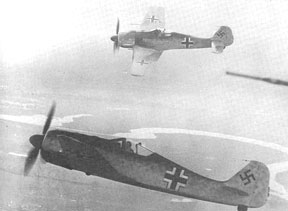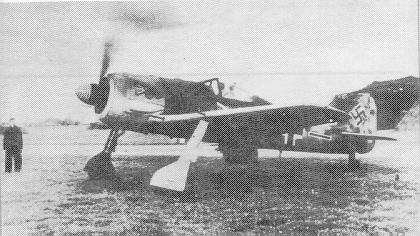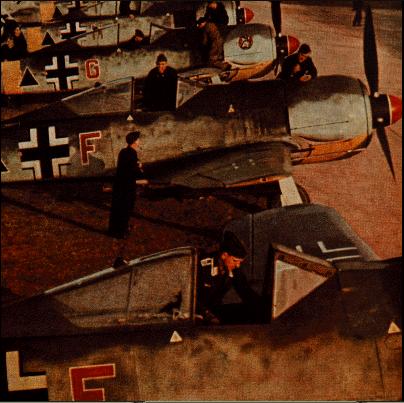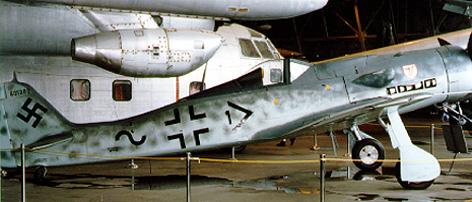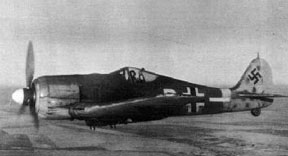Focke-Wulf Fw 190

|
The Focke-Wulf Fw 190 served as single-seat fighter, ground-attack
aircraft and even nightfighter between 1941 and 1945. The Fw 190 first
saw action against Spitfires of the RAF in spring 1941. Its first
prototype was flown three months before World War II, but British
intelligence failed to detect the existence of the Fw 190 and believed
that the only Luftwaffe fighters with a radial engine were some old
captured French Curtiss Hawks. However, it was soon apparent that
the Fw 190 was superior in almost every way to even the latest
Spitfire, the Mark VB. The Fw 190 had an excellently installed BMW
801Dg two-row radial engine, which was in excess since most German
aircraft used in-line engines. The Fw 190 was smaller than all British
fighters but carried heavier armament. Usually the armament
arrangement included four 20mm cannon and two machine guns. It was
extremely maneuverable, well-protected, and had a wide-track landing
gear unlike other contemporary fighters. About 2,000 Fw 190s had been built by the end of 1942. Most were sent to the Eastern Front and North Africa. A few were stationed in France and attacked British coastal towns with large bombs, relying on the fact that no RAF planes could catch the agile Focke-Wulf. New variants appeared, like torpedo-bombers, high-performance fighters, dual-control trainers and even nightfighters. The G version carried fewer guns but had an amazing bomb load of 1805kg. It had stronger landing gear and often used its rockets against ground troops and bombers. The D version, or long-noce Dora, was the fastest of all variants under the Focke-Wulf designation. Instead of a radial engine, the Fw 190D mounted a Jumo 213A liquid-cooled in-line engine at 1,776hp that could be boosted to 2,240hp for short intervals. After 20,051 Fw 190s had been produced, the final development, Ta 152 (after its designer Kurt Tank), was built. The Ta 152 was capable of even higher performance but only a handful entered service. |


